Saudi Arabia ditches allies, holds direct peace talks with Yemen: Report
Saudi officials have reportedly held direct talks with a delegation from Yemen’s Ansarullah resistance movement over a permanent ceasefire to end the war, leaving its allied parties in the cold.
Citing informed sources, the Lebanese al-Akhbar daily reported that Omani-mediated negotiations have been taking place between Saudi Arabia and the Sana’a government in Riyadh.
It said the Saudi-appointed Presidential Leadership Council (PLC) in Yemen and the UAE-backed Southern Transitional Council (STC) “appear to have no role in the negotiations,” predicting that the pair’s role “will not go beyond signing and attending the [upcoming] ceremony.”
Saudi Arabia, the report added, is ignoring the STC’s secessionist aspirations and has rejected its demands to be included in the Riyadh talks.
The discussions are almost at a “final” stage with “great progress,” particularly in relation to humanitarian issues, it noted.
Also recently, a delegation from Oman arrived in Sana’a.
“Optimism exists regarding the mediation and the Omani efforts to achieve peace in Yemen,” Ali al-Qhoom, a member of Ansarullah's political bureau, said on social media.
The peace talks focus a range of issues, including the full reopening of Yemeni ports and Sana’a airport, as well as the payment of public sector wages from oil revenues and rebuilding efforts, in addition to a timeline for the withdrawal of foreign forces from Yemen, he said.
Meanwhile, Saudi Crown Prince Mohammed bin Salman met a delegation from the Sana’a government in Muscat.
The main topics discussed were “the state’s general budget, movement between provinces, and lifting the blockade on ports,” al-Akhbar reported.
“Bin Salman provided guarantees to Sana’a regarding all points of disagreement, including the American position opposing peace.”
Speaking on Sunday, Tawfiq al-Humairi, an advisor to Yemen’s Information Ministry, said Riyadh had agreed to lift the siege on Yemen and return its looted funds.
“The pressures directed towards Saudi Arabia from Sana’a today outweigh the American pressures on Riyadh,” he said, referring to Ansarallah’s threats to target Saudi Arabia and the UAE in retaliation for the protracted war on Yemen.
Saudi Arabia initiated a brutal war of aggression against Yemen in March 2015, enlisting the assistance of some of its regional allies, as well as massive shipments of advanced weaponry from the US and Western Europe.
The Western governments further extended their political and logistical support to Riyadh in their failed bid to restore power in Yemen to the country’s former Saudi-installed government.
The former Yemeni government’s president, Abd Rabbuh Mansur Hadi, resigned from the presidency in late 2014 and later fled to Riyadh amid a political conflict with Ansarullah. The movement has been running Yemen’s affairs in the absence of a functioning administration.
The war further led to the killing of tens of thousands of Yemenis and turned the entire nation into the scene of the world’s worst humanitarian crisis.
A UN-brokered ceasefire, which was reached last year, is still largely in place despite its official expiry. It has significantly reduced clashes over the past months.
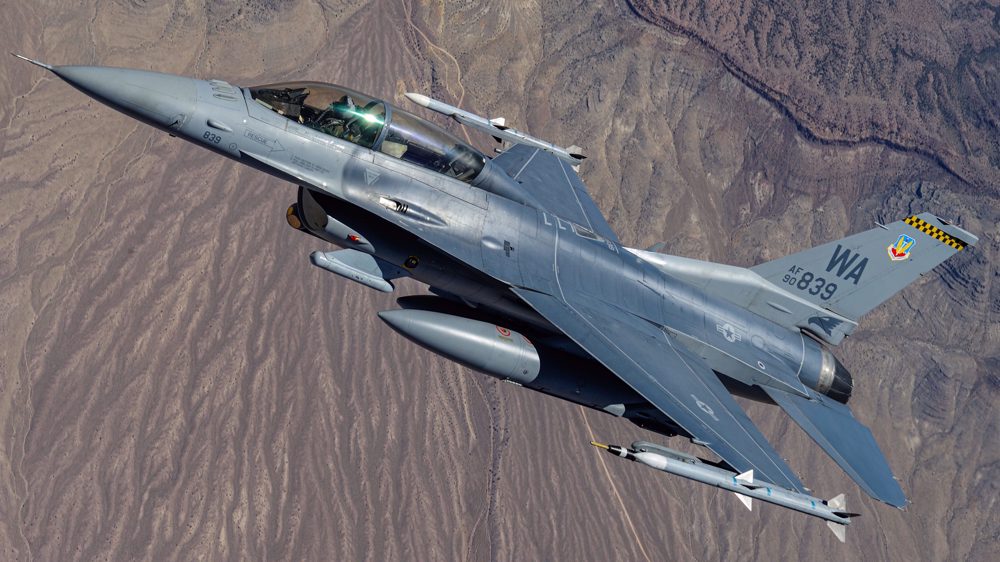
Yemeni forces target US warplane: Report
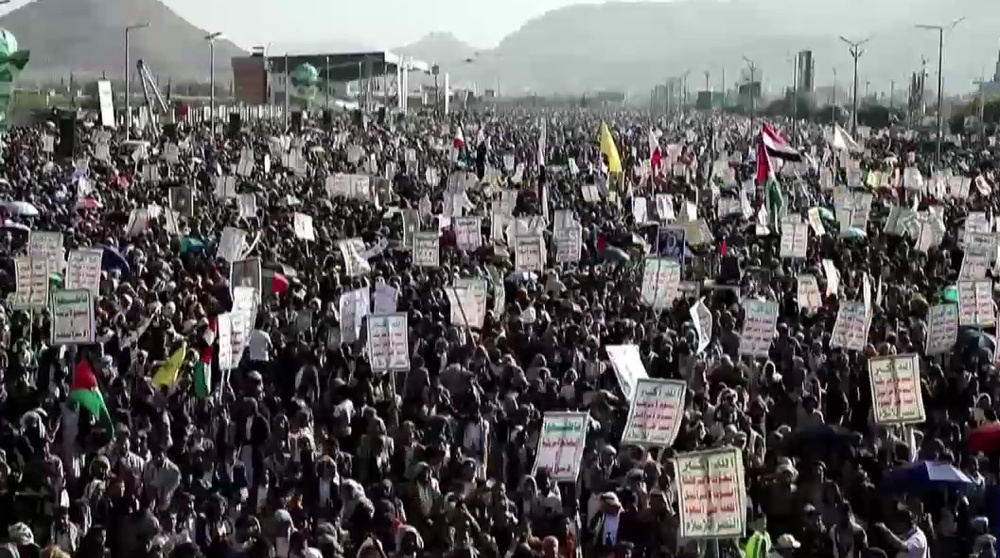
Mass protests in Yemen against Trump’s Gaza relocation plan
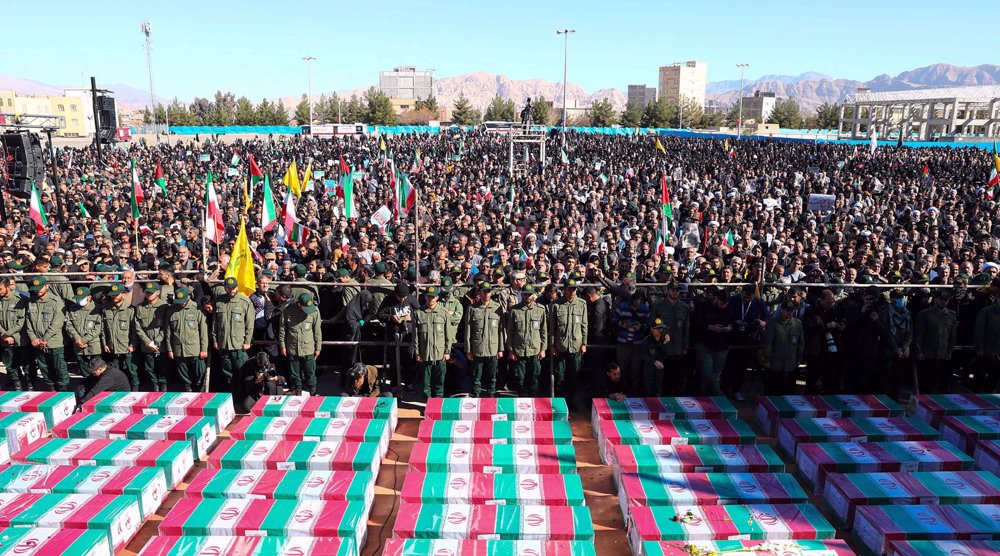
Iran at forefront of fight against al-Qaeda, Daesh, supports regional peace: Envoy
Netanyahu: Israel won't allow Hayat Tahrir al-Sham forces in southern Syria
Hezbollah leaders’ historic funeral showed resistance strength: Islamic Jihad
Iran reports surge in air traffic as Austrian, Lufthansa resume flights
VIDEO | South Africans set to lobby government to isolate Israel
IRGC chief: Nasrallah decisive figure in regional equations with global dimensions
VIDEO | Press TV's News Headlines
Netanyahu's son 'exiled abroad for hitting his father': Knesset member
Iran money supply up 28.4% y/y in late January: CBI


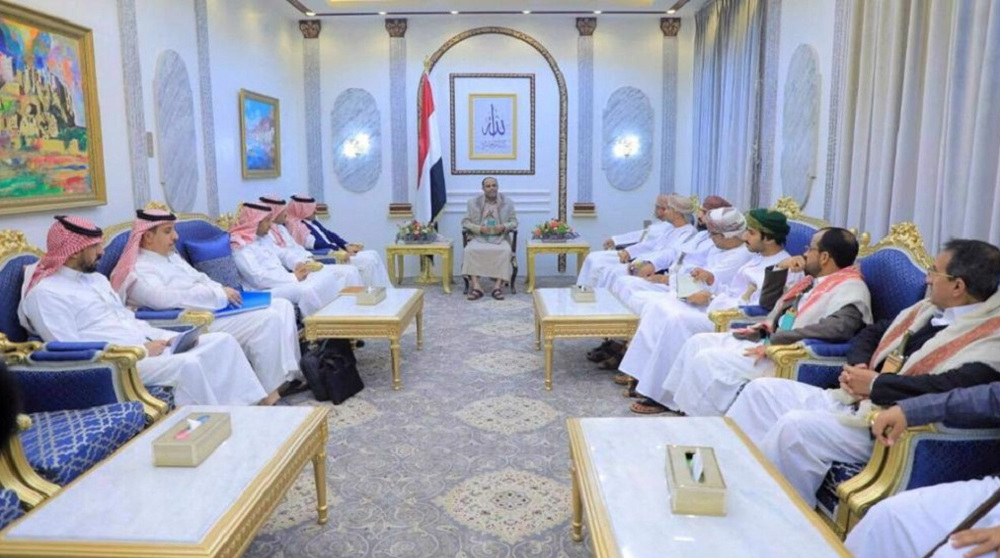
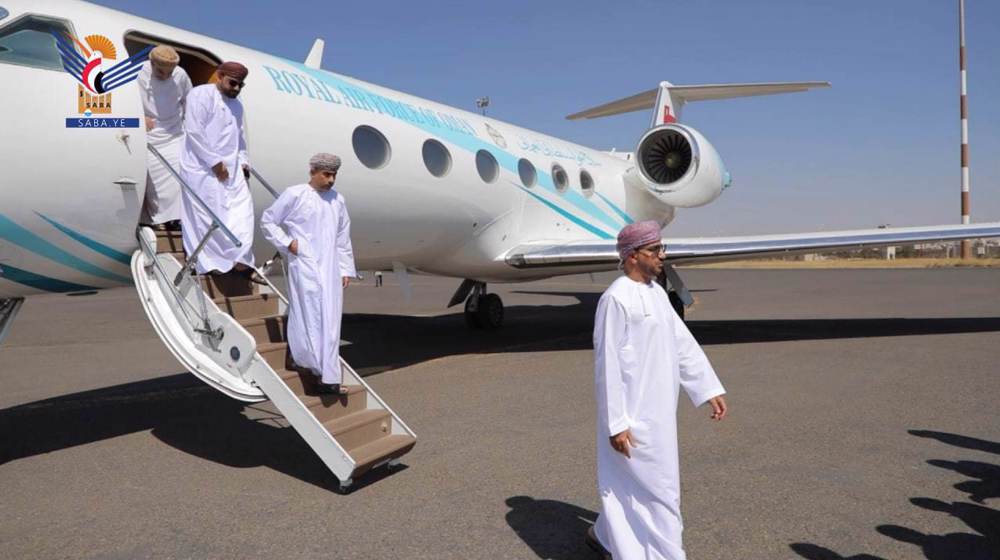



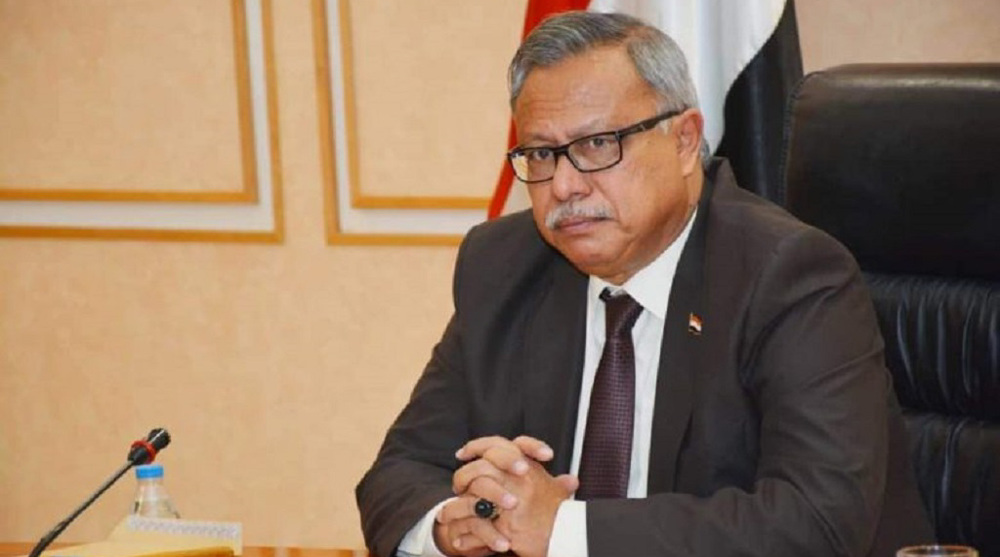
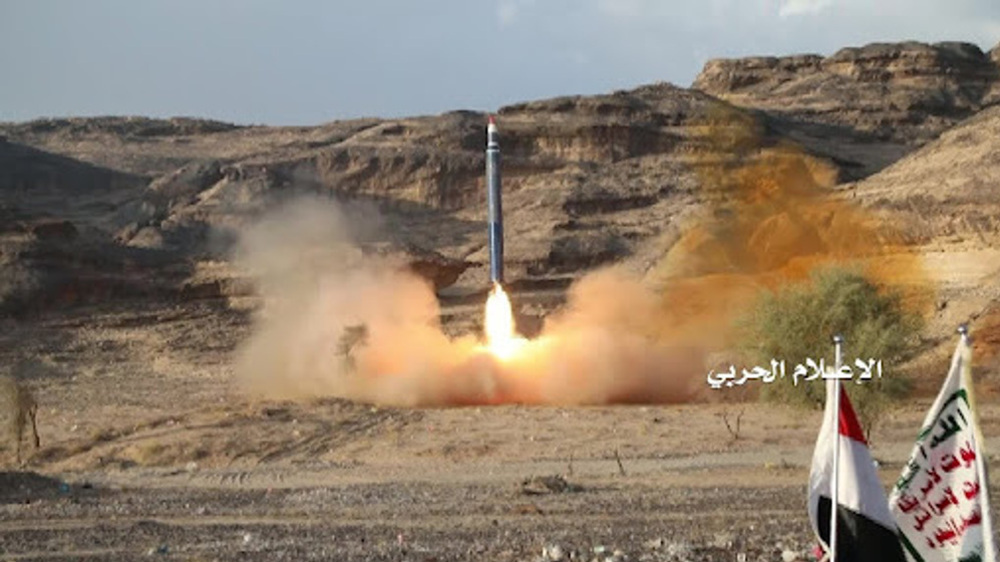
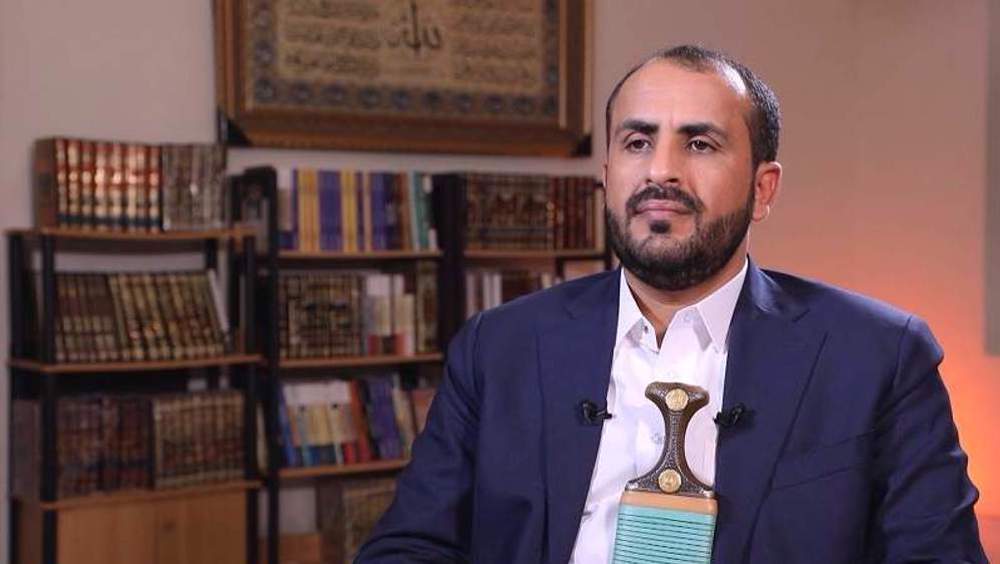
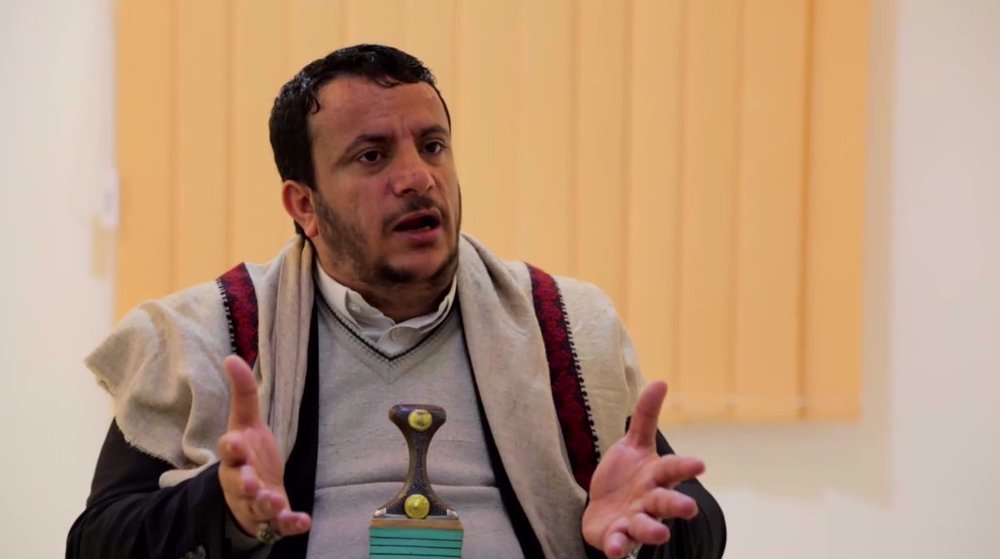
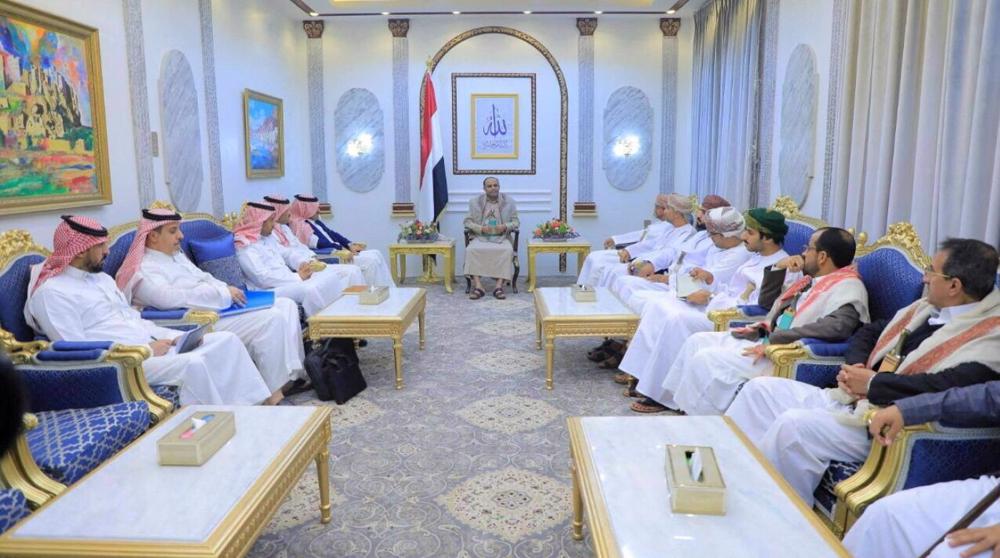

 This makes it easy to access the Press TV website
This makes it easy to access the Press TV website